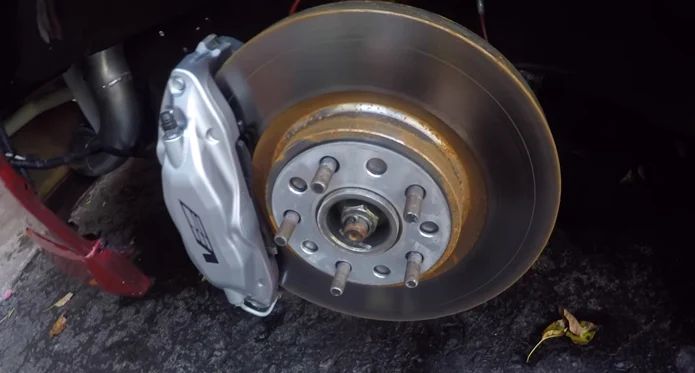Last Updated on March 12, 2023
When brake rotors rust, it can cause the brakes to fail. Not cleaning rusted brake rotors can lead to dangerous and costly consequences.
Keep your brake rotors rust-free the safe way with this helpful guide. By following these simple steps, you can avoid damaging your rotors and keep them in good condition for longer.
Your brake rotors will work smoothly and safely when they are regularly cleaned. It’s an easy process that only takes a few minutes and will help to improve your car’s performance.
Follow our guide on how to clean brake rotors rust and get started today!
Is it Possible for Brake Rotors to Become Rusted?
There is no doubt about it. Brake rotors are susceptible to rusting and acquiring all kinds of surface issues over time. Rusted brake rotors can cause the metal parts to pull away from each other, making it difficult for your car’s brakes to function properly.
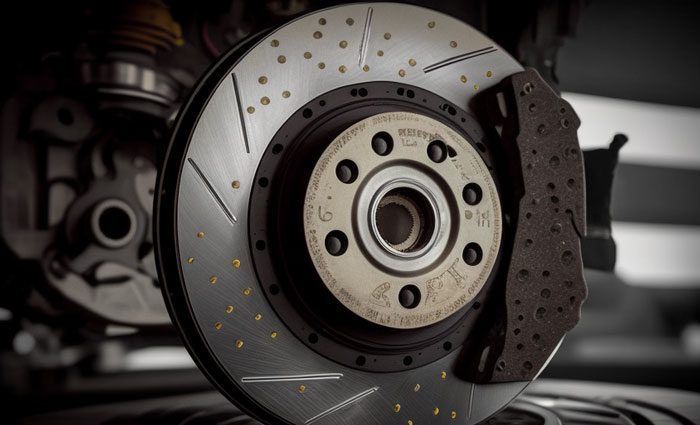
A number of things can cause your car’s brakes to stop working properly. One of the main causes is rusting on your rotors. Brake rotors are made of steel or cast iron, which both oxidize when exposed to water.
Once oxidized, rust forms quickly and can be difficult to remove without damaging the metal underneath.
The good news is that if you catch rust early, there are some simple steps you can take to restore your brake rotors back to good condition.
How to Clean Brake Rotors Rust – The Safe Way
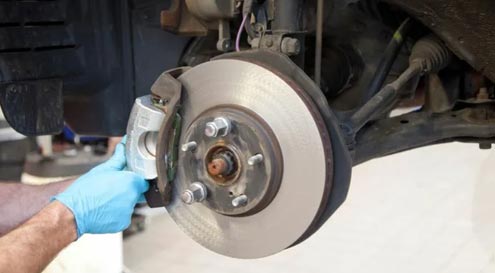
Cleaning brake rotors rust safely takes a little time and effort but can be done using everyday household items.
Here are some simple steps on how to clean your brake rotors the right way:
What you need to know before you start:
Before beginning, make sure you have all of the necessary materials ready to go. Here’s a list of everything you’ll need:
- Distilled Water
- White Vinegar
- Spray Bottle
- Scrubbing Pad
- A hose with fresh running water
Follow the steps below to clean your rotors rust:
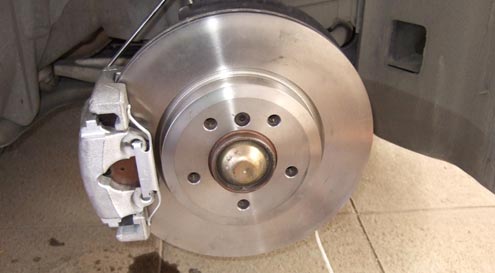
Step 1: First, you need to mix some vinegar and water. Mixing together equal parts of white vinegar and distilled water cures metal corrosion.
Step 2: Add the mixture to a spray bottle for easy application, then begin spraying your brake rotor with it until it is entirely drenched.
Step 3: Once drenched in the vinegar solution, you need to scrub your brake rotor using a non-metallic scrubbing pad. With gentle pressure, rub the rotors until the rust is removed from the surface of the brake rotors.
Step 4: Once clean and rusted free, use a hose and freshwater to rinse off your brake rotor and remove any remaining residue.
Step 5: Once dry, apply brake rotor lubricant to help prevent rust from returning. It’s important that you use a stiff-bristle brush to help clean the rotors of any moisture or residue after it has dried completely.
Step 6: Check your brake pedal to ensure it doesn’t feel spongy or that there is any resistance when applying the brakes. If so, you may need to bleed the brake line, which can be done with some professional help.
Cleaning the Brake with Brake Cleaner
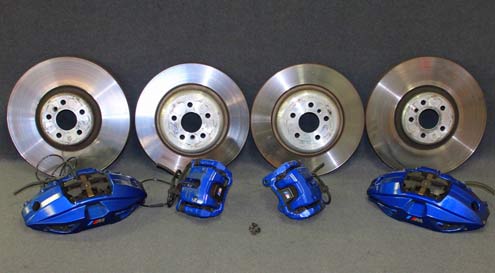
If you want to avoid scrubbing stubborn rust off, you should use a less abrasive method. Brake cleaners are designed specifically for this purpose so they can cut through oil and grime without damaging the metal underneath.
Follow these simple steps to get started:
Step 1: Using a brake cleaner, apply a thin layer to your brake rotor until it is soaked completely.
Step 2: Allow the cleaner to sit for about five minutes before proceeding with step 3.
Step 3: After the brake cleaner has sat for a few minutes, hose it off with water and wipe the remaining residue away with a soft cloth.
Step 4: Once properly rinsed and dried, apply your favorite rust-resistant lubricant to your brake rotor to keep any rust from returning.
Step 5: Once the lubricant has dried, your brake rotors are ready to be reinstalled.
If you’re having trouble removing rust from your brake rotor this way, it’s suggested that you try using a wire brush or sanding pad because they won’t damage the metal as an abrasive cleaner would.
Before applying any chemicals, make sure that your brake rotor has been thoroughly cleaned. The cleaner the surface, the more effective a given chemical will be at breaking through oil and rust.
If you’re going to use a cleaner, you’ll find it helpful to first remove loose rust particles with a brass brush before applying any chemicals.
Cleaning brake rotors properly is an important task that should not be neglected, as rust can spread and cause serious damage to your brake system.
Common Causes of Brake Rotor Rust
When it rains, brake rotors rust rapidly due to the presence of water. Water can enter your car’s brake system in many ways, such as rain, winter snow, and ice, washing your car, and even condensation from humidity.
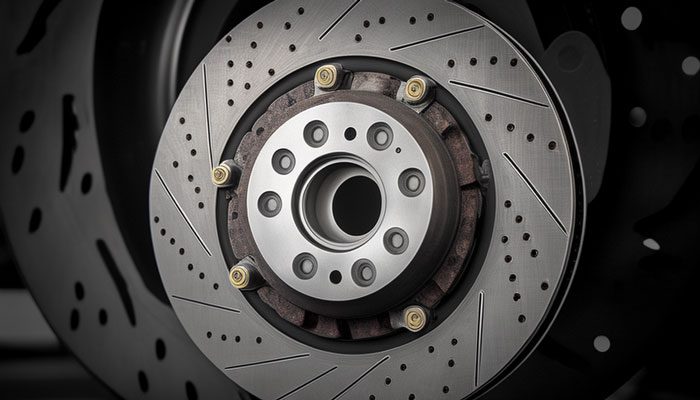
The problem with rusty brake rotors is that they affect the thickness of the rotor, which makes it impossible for your brake pads to fit properly.
It can cause uneven braking when this happens, and the brakes will start to vibrate when you apply them.
To ensure that your brakes operate at peak performance, you should routinely inspect the rotors of any vehicle with hydraulic brakes.
Tips for Preventing Brake Rotor Rust in the Future
The best way to avoid corrosion on your rotors is to clean them properly after each use.
Before applying rust-resistant lubricant when you clean your car, be sure that the brake rotor is completely dry.
Never drive with wet brakes because this will only cause more water to seep into your brake system and corrode your brake rotors.
If your car is exposed to snow or ice, make sure the brakes are in excellent condition before driving. Also, consider applying a waterproof rust inhibitor when you park in an area that frequently snows to prevent rust from returning.
Properly cleaning your brake rotor will help ensure that you can stop safely when you need to.
Without proper brakes, your car can become a dangerous weapon on the road.
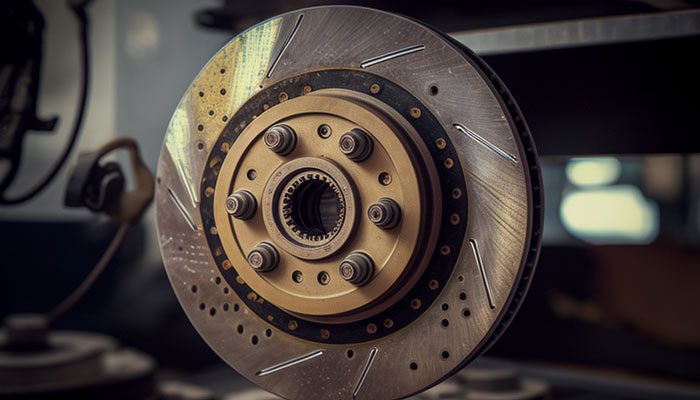
Conclusion
Rusty brake rotors can cause serious problems with your braking system, so it’s important to clean them off regularly. Fortunately, you can do this using common household items as well as following a couple of simple steps. With the tips in this article, you can avoid any dangerous situations on the road by keeping your brakes working properly and following the article’s recommendations. Thanks for reading!

